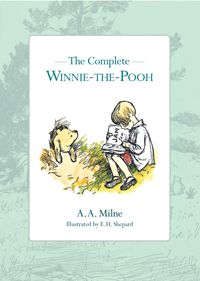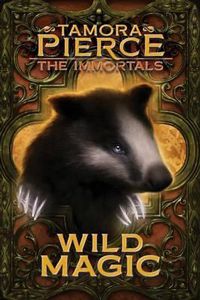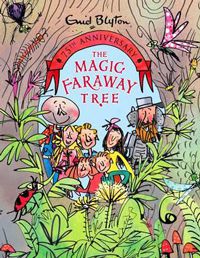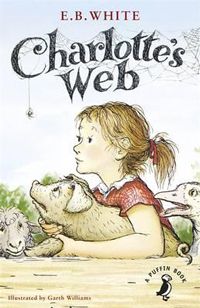Our staff revisit some of their favourite books as children, and reflect on how their opinions have shifted.
Isobel Moore has a new (and wiser) appreciation for Winnie-the-Pooh’s MO
When I read A. A. Milne’s stories as a child (or more accurately, had them read to me) I just thought of Pooh as a funny, silly bear who had pleasant adventures as he romped around the Hundred Acre Wood. But then I read these stories again as an adult, and gosh… Do I get where Pooh is coming from now! All this dear bear wants to do is eat or sleep, and maybe sometimes execute a cunning plan with his friends – preferably while eating. This attitude now makes total and complete sense to me. No longer does Pooh seem silly to me. He’s clearly a very wise bear who understands the value of eating and sleeping and eating some more. I’m with you, Pooh.
Holly Harper was nervous the magic of Tamora Pierce’s Tortall would fade with adulthood. (Spoiler: It didn’t!)
It was with a considerable degree of apprehension that I reread Tamora Pierce’s Wild Magic. Hers were the first books I was obsessed with; the first books I loved so completely that they sparked a lifelong infatuation with reading. I can remember sitting in the backseat of the car on the way home from the library and slipping away into the land of Tortall, of magic and quests and a girl named Daine who could speak to animals.
What if I returned to Tortall and found the magic had worn off?
There was no need to worry. Tamora Pierce is still just as brilliant twenty years later. And re-reading Wild Magic, it was interesting to see just how this book informed my tastes later on in life – strong female characters who use their brains and the creation of fantasy worlds you just want to live in. The only disconnect was realising that Daine is about a million billion years younger than her love interest (well, twelve years younger, but still…).
Lian Hingee found rereading The Magic Faraway Tree as an adult odd, but charming.
My mum was never a really big reader but like a lot of parents, she understood the importance of books. Every night at bedtime we’d get stories. The ones that stayed with me the longest were The Paperbag Princess (my first brush with feminism), Commodore Perry and the Opening of Japan (guaranteed to put me to sleep), Digit Dick and the Magic Jabiru (I know the name of this Australian version of Tom Thumb is hilarious but I didn’t make him up!), and Enid Blyton’s Faraway Tree series. Like Jo, Bessie, Fanny and Dick (shut up), I grew up quite near a forest. And because I was both impressionable and gullible, I spent a lot of time climbing trees, trying to find the one that would lead me to The Land of Spells, The Land of Toys, or The Land of Do As You Please.
Rereading The Magic Faraway Tree was an odd experience because – of course – I’m an adult now. These days, I know all sorts of unsavoury things about Enid Blyton and phrases like, “Oh Mother, what fun!”, have me mentally rolling my eyes. Plus… There’s! An! Awful! Lot! Of! Exclamation! Marks! But the longer I stayed in Enid Blyton’s world, the more familiar and magical it became.
The book is a fast-paced read with approximately zero character development, no structure, and no real plot beyond: The children go up the tree, they have an adventure, they come home and eat crumpets. Rinse and repeat. Admittedly, there’s kind of a charm to this and I can see why I enjoyed these books so much as a child. Jo, Bessie, Fanny and Dick (shut up) are ciphers and this allows readers to imagine themselves in the roles. The world around them is thinly-sketched which means young readers can create their own imagery. Plus, the short pacy chapters are perfect bite-size morsels to read before bedtime.
Bronte Coates didn’t realise how special Charlotte when she was a child.
When I first read E.B. White’s book as a child, I remember identifying strongly with Fern – the young girl who stops her father from killing Wilbur in the opening pages. Like her, I didn’t think it was fair to kill a pig just because he was small, and like her, I loved Wilbur who is a dear creature. And while I liked Charlotte and was sad when she died, it wasn’t what resonated with me. But revisiting the book now, I see that Charlotte is obviously the very, very best character.
Here’s a choice quote from the book that captures my feelings: ‘In good time (Wilbur) was to discover that he was mistaken about Charlotte. Underneath her rather bold and cruel exterior, she had a kind heart, and she was to prove loyal and true to the very end.’ Charlotte is brave, clever, generous and funny – all things I aspire to be. As an adult reader, I appreciate her so much more.
I recently came across this fascinating article about the portrayal of feminism and nature in the book, and it’s given me even more reasons to love Charlotte.






